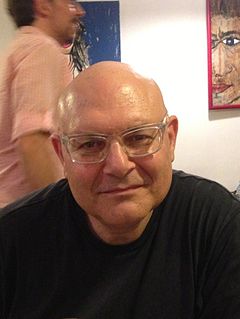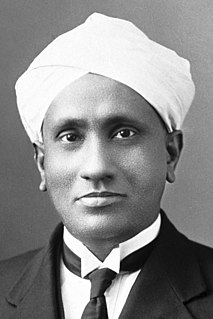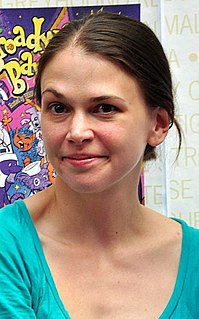A Quote by Deborah Smith
All of which suggested literary translation, and Korean seemed a good bet - barely anything available in English, yet it was a modern, developed country, so the work had to be out there, plus the rarity would make it both easier to secure a student grant and more of a niche when it came to work.
Related Quotes
General editors' preface The growth of translation studies as a separate discipline is a success story of the 1980s. The subject has developed in many parts of the world and is clearly destined to continue developing well into the twenty-first century. Translation studies brings together work in a wide variety of fields, including linguistics, literary study, history, anthropology, psychology, and economics. This series of books will reflect the breadth of work in translation studies and will enable readers to share in the exciting new developments that are taking place at the present time.
Some stories I write in Swedish, some in English. Short stories I've almost exclusively written in English lately, mostly because there's such a small market for them in Sweden and it doesn't really pay either. So, the translation goes both ways. What also factors in is that I have a different voice in English, which means that a straight translation wouldn't be the same as if I'd written it in English originally.
Historical grammar is a study of how, say, modern English developed from Middle English, and how that developed from Early and Old English, and how that developed from Germanic, and that developed from what's called Proto-Indo-European, a source system that nobody speaks, so you have to try to reconstruct it.
One of the producers, Wonjo, was an amazing interpreter. I don't think we really knew how it was going to work at the beginning. Yet it was something that a couple of days into it seemed so seamless and it wasn't something that we noticed or thought about. A couple of times I cornered him and forced him to speak English but we didn't speak much English at all. That said, I don't think anything was ever lost in translation. It was all very easy.
So anything that's not absolutely needed, we would cut it [footage] out, which would make me very insecure; everything has to work, and it's a water movie in 3D with a kid, animals. So the more I do that, the more I'm scared of "What if it doesn't go the way we want it?" But we had to do that to meet the budget, otherwise we wouldn't even have a start-date.
I was so grateful to work on 'Bunheads.' We had so much material, and everything was so rapid-fire, and I developed - through theater too, I developed a really great work ethic. I think preparing for both of them is just that - you come to set ready to go, ready to play. You know your lines. You're ready to work.
In translation studies we talk about domestication - translation styles that make something familiar - or estrangement - translation styles that make something radically different. I use a lot of both in my translation, and modernism does both. For instance, if you look at the way James Joyce presents Ulysses, is that domesticating a classic? Think of it as an experiment in relation to a well-known text in another language.
I think the regime in North Korea is more fragile than people think. The country's economic system remains desperate, and one thing that could happen for example would be under a new government in South Korea, to get the South Korean government to live up to its own constitution, which says any Korean who makes it to South Korea, is a Korean citizen. A citizen of the Republic of Korea. And you could imagine the impact that would have inside North Korea if people thought, "If I could get out and make it to South Korea, I could have a different life."


































